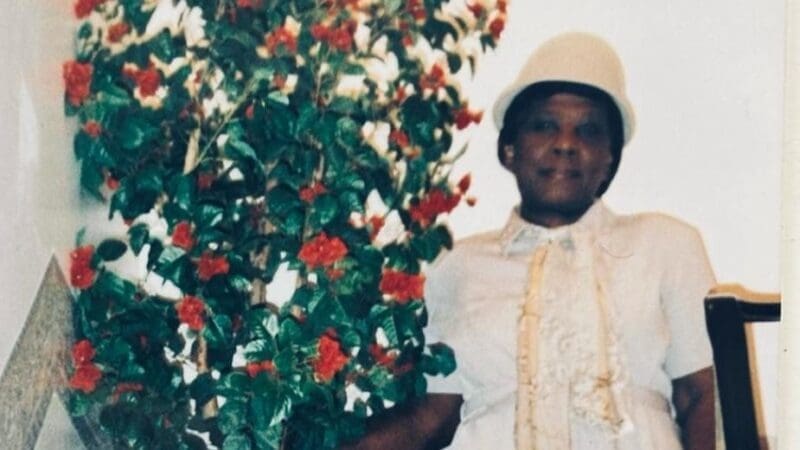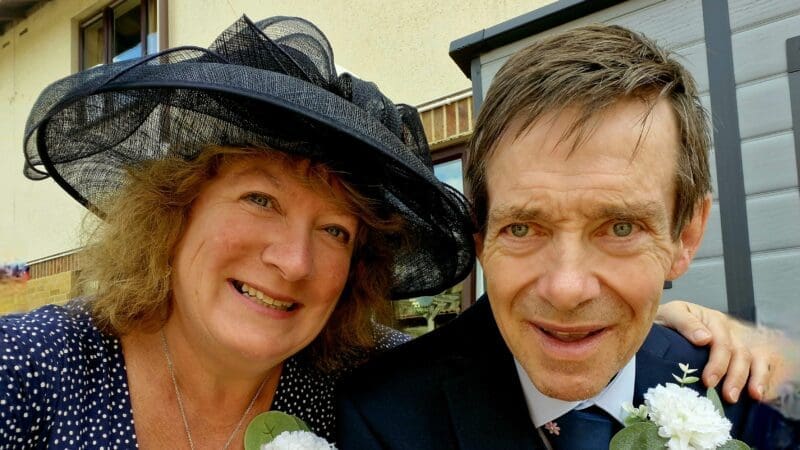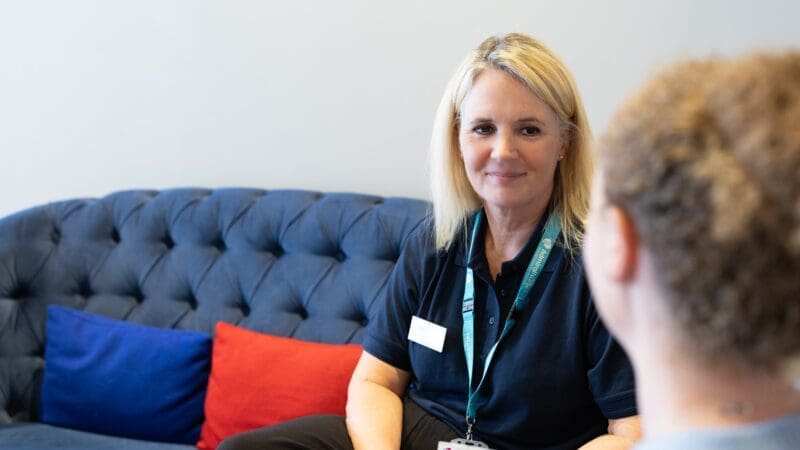
Tim’s story – “There is stigma around dementia”
Tim reflects on the stigma that is often attached to dementia and the importance of the Black, African and Caribbean Admiral Nurse clinics.
Often, people with dementia stop recognising those around them. This can be frightening for the person and upsetting for their family and friends. Our dementia specialist Admiral Nurses share why this happens and give advice on coping with this difficult stage.
Sometimes, memory issues can cause someone to struggle to recognise their family or friends. The person with dementia may believe they are living in the past, reliving memories from when they were younger. They may expect their grown-up children to still be small, meaning they don’t recognise them as adults. They might believe that their parents are still alive, and mistake someone else for them. They might think they are still in a previous relationship and not recognise their partner.
In other cases, the part of the brain that is responsible for recognising faces can become damaged. This is referred to as ‘prosopagnosia’ or ‘face blindness’.
If a person with dementia is failing to recognise you or others for the first time or seems distressed in your company, there may be another underlying cause, such as an infection, constipation or a reaction to medication changes. It’s a good idea to make an appointment with their GP to rule out causes that could be treatable.
Struggling to recognise people tends to become more common in the middle or late stages of dementia, although this can vary from person to person.
As a family member or friend of the person with dementia, it can be very hard when they don’t recognise you, particularly if you are close. You might feel a sense of grief and loss, even though they are still alive.
However, it doesn’t mean the person has totally forgotten you. They will often feel an attachment to you and enjoy your company even if they can’t remember your name or how you are connected to them.
If, as a carer, you are finding this stage difficult to cope with, it’s important not to struggle alone. You might want to talk to someone about your feelings, such as a dementia specialist Admiral Nurse. You can also find new ways to enjoy your changing relationship, and take steps to look after yourself so you feel mentally stronger to cope with this change in your loved one.
There are some ways in which you can help the person recognise their family members and friends.
Photos can be useful in reminding a person with dementia who someone is.
While the person with dementia may have difficulty with short-term memory, they may still have clear memories of past events. Make time to engage with them if they speak about the past, particularly when it comes to happy memories.
Making sure that the person feels supported and comfortable, even if they are confused, is important and will reassure them that you are someone they can feel safe with.
Some people struggle with verbal communication as dementia develops. This could also cause difficulties with them recognising people, especially if their memory for names is affected. However, there are other ways that you can engage with the person.
If the person with dementia is struggling to recognise you, introduce yourself and explain the connection between you: for example, “Hello Mum, it’s Julie, your daughter, and I have little Danny, your grandson, with me.”
If the person is getting agitated, take yourself to another room for a few minutes before coming back in calmly, and saying something like, “Hello, I’m back now. How lovely to see you.”
Try not to correct the person if they get your name wrong or say something that isn’t true – this can lead to distress and frustration on all sides.
Keep in mind that while it is upsetting when a person with dementia, they are still likely to know that you are someone special to them. Finding ways to connect, whether that’s going for a walk, watching a film or looking at photos, can help to maintain the bond between you even if they can’t remember your name or the relationship between you
To speak to a dementia specialist Admiral Nurse about loss of recognition or any other aspect of dementia, call our free Dementia Helpline on 0800 888 6678 (Monday-Friday 9am-9pm, Saturday and Sunday 9am-5pm, every day except 25th December) or email helpline@dementiauk.org. If you prefer, you can pre-book a phone or video appointment at a time that suits you.

Tim reflects on the stigma that is often attached to dementia and the importance of the Black, African and Caribbean Admiral Nurse clinics.

Katrina reflects on the support she has received from her Admiral Nurse, Rachel, since her husband was diagnosed with young onset dementia.

Linda attended a Nationwide clinic and reflects on the advice she received from Admiral Nurse, Emma.
There are many activities that can help someone with dementia connect with previous memories. Meaningful activities such as art, watching films they enjoy, listening to music and life story work have all been shown to help. Find out more about meaningful activities.
Medication can help with memory and recognition in some types of dementia, particularly Alzheimer’s disease and dementia with Lewy bodies, although it is not effective for everyone, and is not a cure – the symptoms of dementia always progress over time.
Before starting medication for dementia, it is important to weigh up the pros and cons in conjunction with the doctor. They will consider:
It can be very difficult for children and young people when someone close to them stops recognising them, but you can reassure them that even though they may not know exactly who they are, they may still enjoy their company. Our resources will help you explain what is happening. You can also suggest other ways for them to stay connected to their loved one, like looking at photos, reading to them or just talking about what they’ve been doing.
It can be very upsetting if a loved one doesn’t recognise you, but it doesn’t mean the person has totally forgotten you. In some people, loss of recognition comes and goes, so some days they might know who you are, but on others be more confused. Our tips above may help the person remember who you are, or just create a sense of closeness and connection even if they can’t pinpoint it exactly.